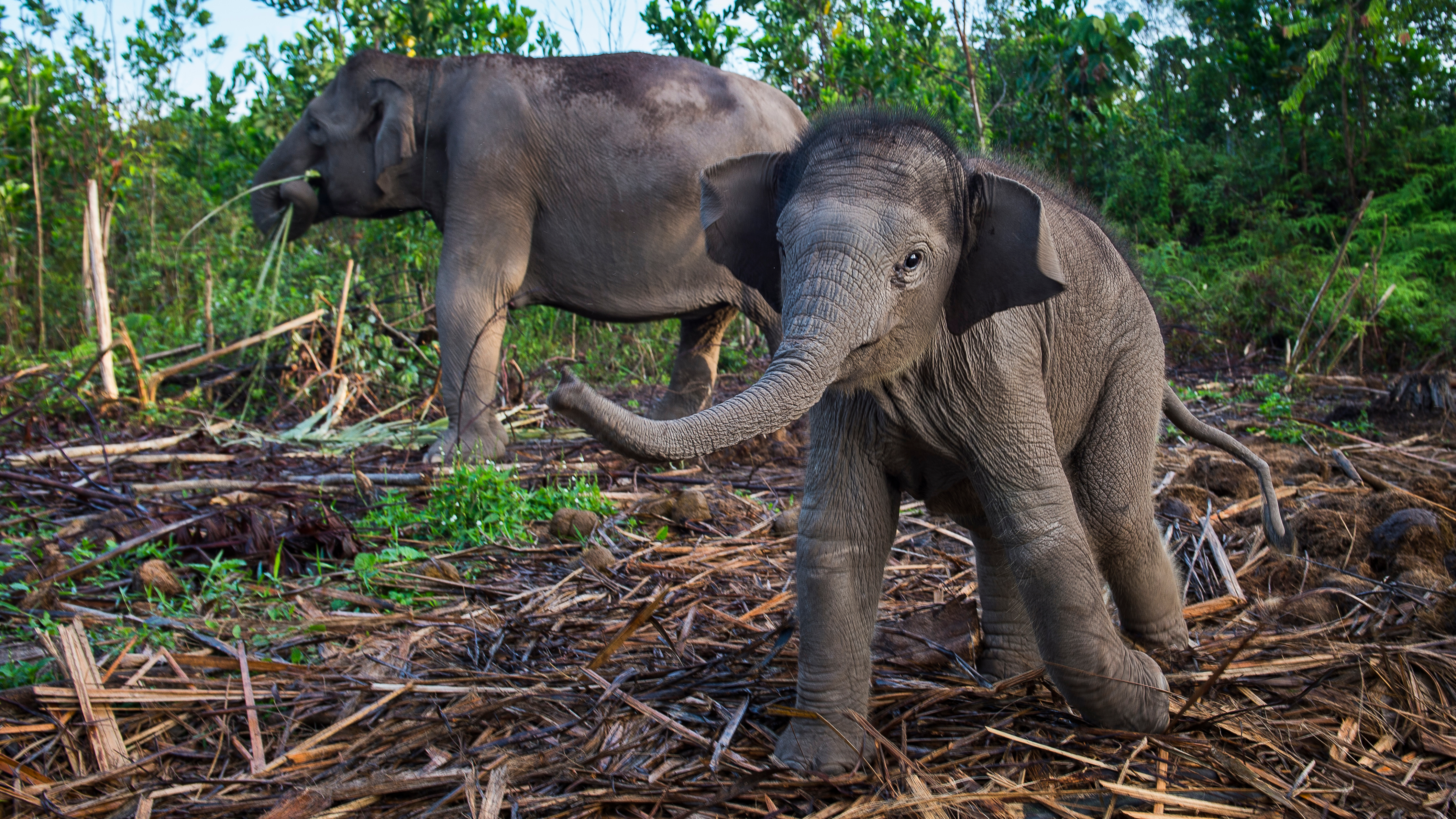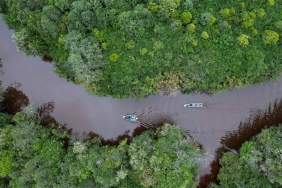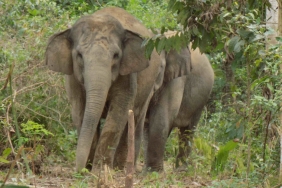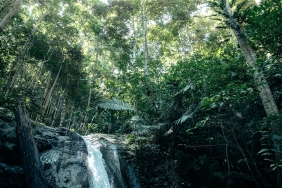WWF’S FLYING SQUAD ELEPHANT GIVES BIRTH TO A FEMALE CALF
Pekanbaru (22/8) – A trained elephant, a member of the WWF’s Flying Squad at the Tesso Nilo National Park gave birth to a female calf on Aug. 7. The calf is the fourth new member of the squad at the park located in Pelalawan District, Riau Province, Indonesia. The new born calf, weighed around 90 kilograms, had been healthy since it was born two weeks ago.
The calf, which has yet to be named, was delivered by its 35 years old mother, Ria. The elephant showed signs of giving birth over the past month.
The birth was first discovered by named Erwin Daulay, a mahout or elephant keeper working for WWF-Indonesia. Erwin had predicted that Riau would give birth this month. However he could not predict the exact time, until in the morning of Aug 7, Ria showed unusual signs. Ria acted as if she was dodging Erwin at first, but when he got closer, he saw the calf was already standing next to her. The gestation period of a Sumatran elephant is generally between 20 and 22 months.
""The birth of the new born calf is not only a special gift for Eidul Fitri Holiday but also to welcome the World Elephant Day, which falls on August 12,"" said Dr. Sunarto, WWF-Indonesia’s experts on species conservation. ""This birth brings hope to survival of wild population of elephant in Tesso Nilo national park, amidst challenges they’re facing. Elephant have a human-like character, they do not easily give up when facing difficult the circumstances,” Sunarto added.
The Flying Squad is a joint initiative of Indonesia’s Forestry Ministry and the WWF. The squad comprises two male and two female elephants and eight mahouts. Since 2004, the Flying Squad has mitigated human-elephant conflicts by using trained elephants to herd wild elephants away from human habitations and plantations, into the national park areas. Large-scale deforestation and habitat degradation, especially for oil palm plantations, has led to increased human-wildlife conflict.
Since 2011, Sumatran elephants are classified as critically endangered by IUCN. In the last 25 years, Sumatran elephants have lost 70% of their habitat and their population has declined by more than 50%. Due to the decreasing elephant habitat, human-elephant conflicts are on a rise.
Since 2004, more than 100 Sumatran elephants (Elephas maximus sumatranus) died in Riau Province. Fifteen elephants were found dead in 2012 only, of which 12 carcasses in Tesso Nilo forest complex. The number keeps escalating. In May 2013, WWF-Indonesia teams found 3 elephant carcasses and suspected unnatural death due to poisoning.
Note for Editors:
Hires PHOTOS of the female elephant calf can be downloaded through http://bit.ly/18IXKjT, and can be used by mentioning © WWF-Indonesia copyright..
For more info, please kindly contact:
Syamsidar, Communication Senior Officer, WWF-Indonesia Riau Program
Email: syamsidar@wwf.or.id, Mobile: +62 812 6896095
Sunarto, Species Specialist, WWF-Indonesia
Email: sunarto@wwf.or.id, Mobile: +62 811 9950521
Kemal Amas, Head of Natural Resources Conservation Agency, Riau Province
Email: amaskemal@gmail.com, Tel/Fax: +62 761 63135





